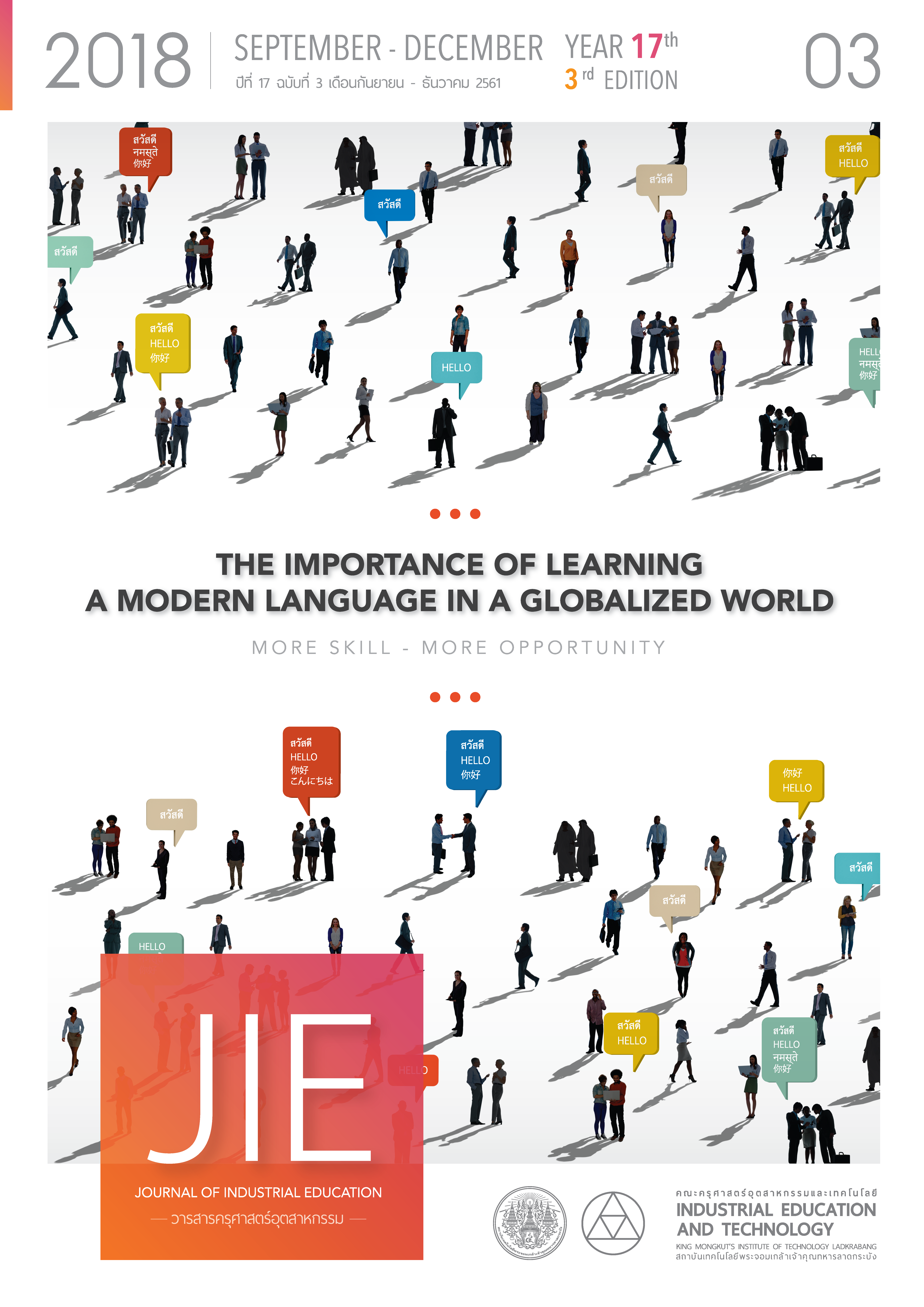DIGITAL KNOWLEDGE ENGINEERING-BASED LEARNING ENVIRONMENT FOR DEVELOPING SOFTWARE ENGINEERING TECHNICAL SKILLS
Main Article Content
Abstract
Digital Knowledge Engineering-based Learning give students the opportunity to create knowledge, publish, distribute and sharing knowledge with instructors and specialists with digital technology which was consisted of six parts; 1) Knowledge Creation, 2) Knowledge Storage, 3) Knowledge Acquisition, 4) Knowledge Access, 5) Knowledge Sharing, and 6) Knowledge Application. It could be used to teach students to solve problems in the software development process, and to provide software engineering technical skills that are as follows: 1) Software Requirements Skills, 2) Software Design Skills, 3) Software Construction Skills, 4) Software Testing Skills, and 5) Software Sustainment Skills.
Article Details
"The opinions and contents including the words in papers are responsibility by the authors."
"ข้อคิดเห็น เนื้อหา รวมทั้งการใช้ภาษาในบทความถือเป็นความรับผิดชอบของผู้เขียน"
References
[2] Ministry of Information and Communication Technology. 2011. Information and Communication Technology Policy (ICT2020). Bangkok: Ministry of Information and Communication Technology. (Brochure).
[3] Pimdee, P., Jedaman, P., Kidradarn, P., Sukkamart, A., Wangsa-ard, K., & Suksup, C. 2017. The education development in the 21st contury under the thailand 4.0 framework. Journal of industrial education, 16(2), p. 199-206.
[4] Maneetum, T. 2014. Study of problem images and knowledge management, information technology and communication service centers at Phayao University. Phayao: Phayao University.
[5] NIDTEP. 2005. Knowledge Management in Education. Bangkok: KSP.
[6] Jaikaewma, A. 2018. What is the Yii Framework. Retrieved April 6, 2018, from https://goo.gl/YaXrUf
[7] IEEE. 2014. Software Engineering Competency Model. NJ : IEEE Intellectual Property Rights Office.
[8] Thanalerdsopit, P., & Pongwiritthon, R. 2015. Knowledge Management for Research in Higher Education: A Case Study Rajamangala University of Technology Lanna. FEU Academic Review, 9(2-4), p. 63-75.
[9] Vasconcelos, J, B., Kimble, C., Careteiro, P., & Rocha, A. 2017. The application of knowledge management to software evolution. International Journal of Information Management, 37, p. 1499-1506.
[10] Cerchione, R., & Esposito, E. 2017. Using knowledge management systems: A taxonomy of SME strategies. International Journal of Information Management, 37, p. 1551-1562.
[11] Hassan, H, C. 2013. A Framework for User Requirement Assessment in Technical Education Facility Planning: a Knowledge Engineering Approach. Social and Behavioral Science, 107, p. 104-111.
[12] Thanachawengsakul, T., Wannapiroon, P., & Nilsook, P. 2018. Synthesis of Digital Knowledge Engineering Repository Management System. 2nd International Conference on E-Business and Internet, 2, p. 23.

